17 Ways Retail Store Layouts Are Designed to Trick You
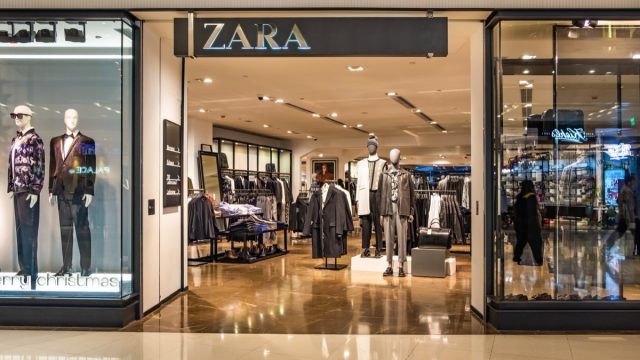
You may consider yourself impervious to marketing tactics. But, as it turns out, every single time you set out on on a shopping spree, there are easily, at any given time, a handful of different behind-the-scenes endeavors deployed to ensure that you spend more money than you had first intended to upon entering the brightly-lit store. From inviting aromas to confusing layouts, nearly every retailer on the planet is guilty of using subtle tactics to persuade you to hand over all of your money. (And, psst: it nearly always works).
So, if you’re looking to finally outsmart the system, here we’ve uncovered the secrets behind why each store is laid out the way it is—and how to use this information to save big on your next shopping trip.
1
The sale section is by the fitting rooms.
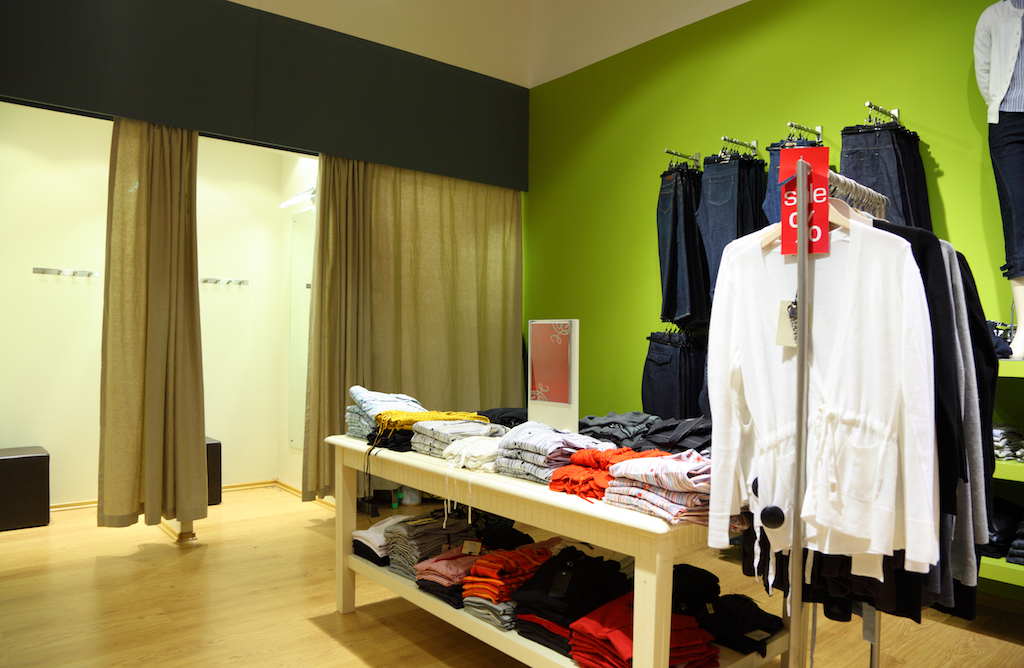
It’s a good bet the clearance section is located by the fitting rooms. That way, customers are more easily swayed to grab a few extra items en route to trying on clothing. What’s more, most stores will keep the clearance section as far away from the front as possible, since customers are more likely to completely bypass full-price items if they spot steep discounts first.
2
Stores are designed to be as spacious as possible.
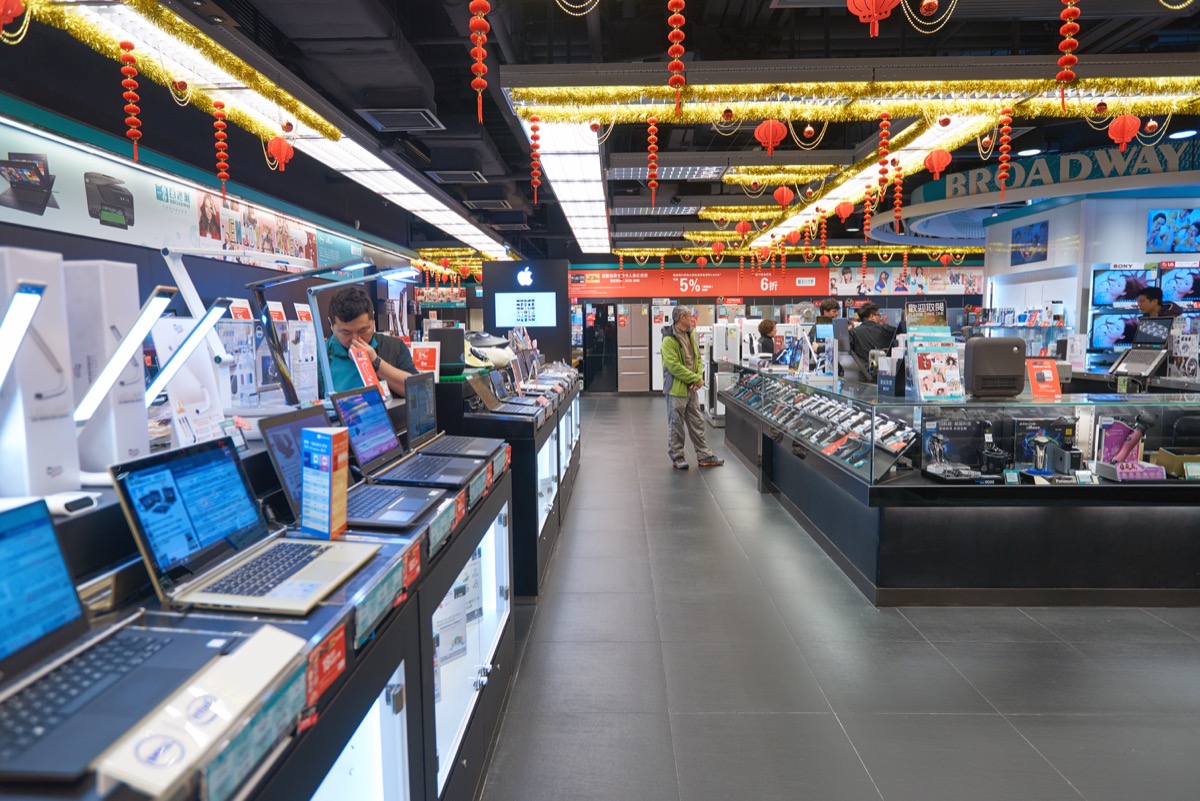
The last thing you want to feel while shopping is cramped for space—and retailers are fully aware of that fact. So, in order to ensure that customers are as comfortable as possible, stores like Target and Walmart make sure that their aisles have ample breathing room. That way, consumers will avoid any awkward interactions that could take place while shopping.
3
Retailers keep entryways free of clutter.
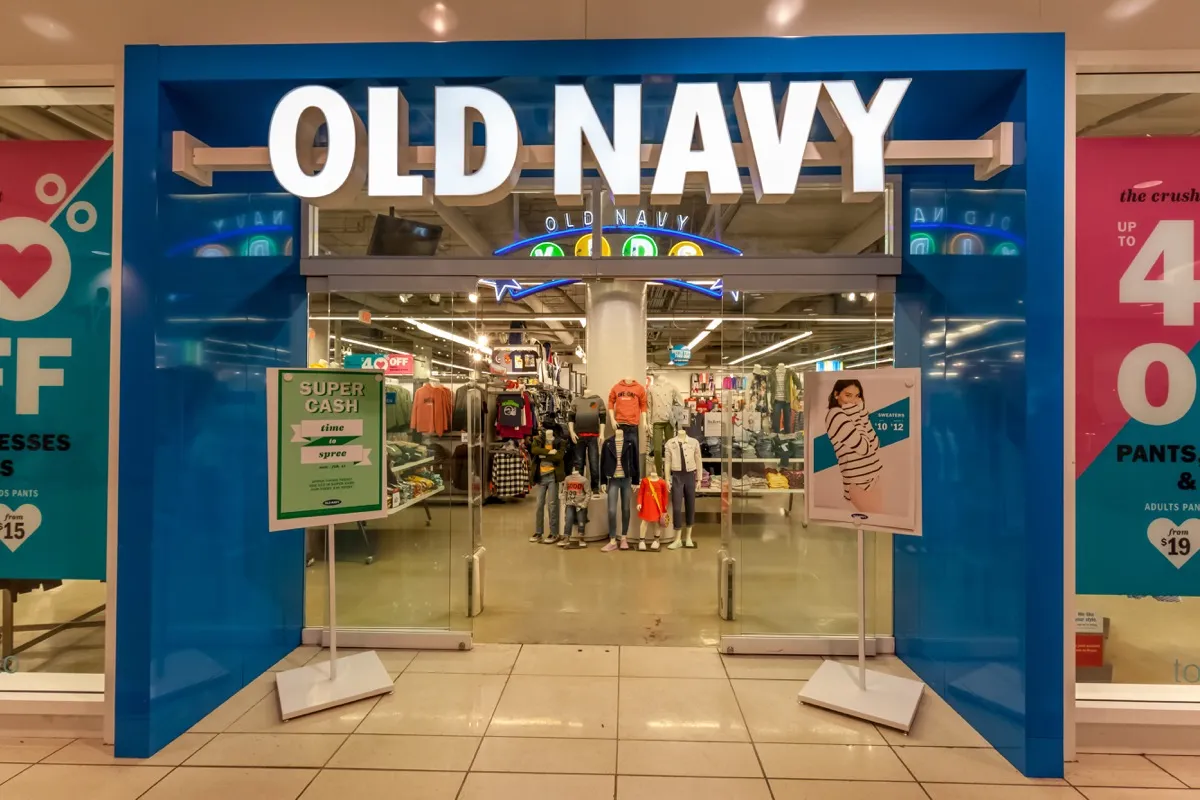
The desire for a free space to shop is also reflected in the fact that stores are more likely to keep their entryways completely devoid of products that are sure to deter those customers looking for a comfortable shopping excursion. To maintain a steady (and relaxed) customer base, stores are sure to provide a welcoming and empty entrance.
4
They greet you with shopping carts.
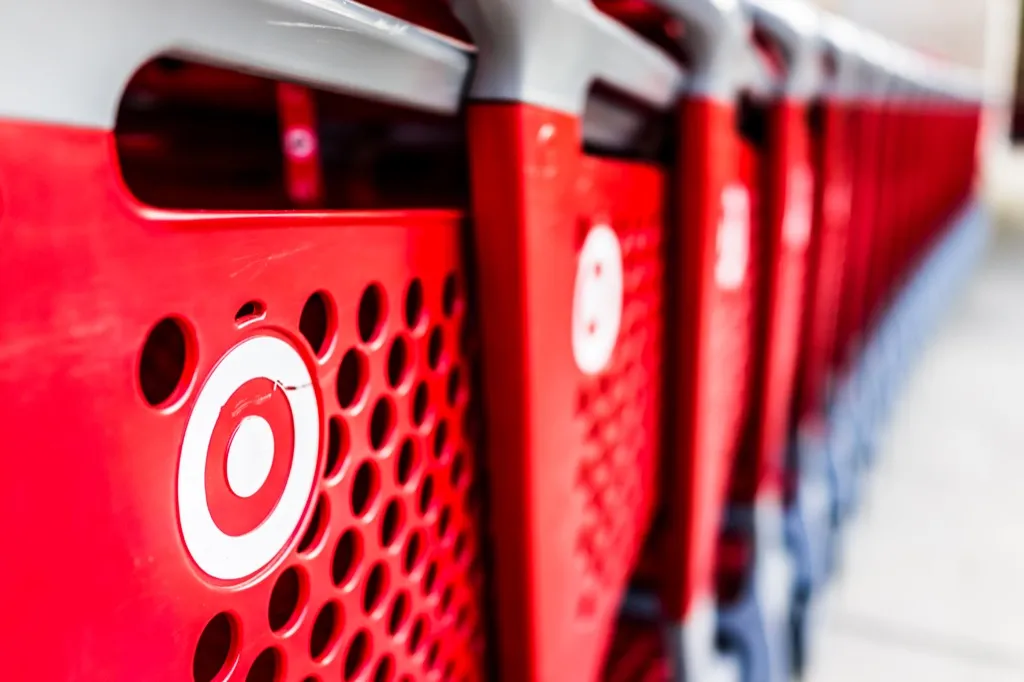
Since the 1930s, shopping carts have provided an effortless way to store all of your purchases—and also, as it turns out, for stores to ensure that you’re pressured to buy more than you had originally intended. This might be why stores often greet customers with rows of carts ready to aid customers in the customer’s pursuit of unneeded goodies. As reported by Business Insider, stores are more likely to greet you with a row of carts to ensure that you’ll have room to make those spontaneous purchases.
5
Store layouts change often.
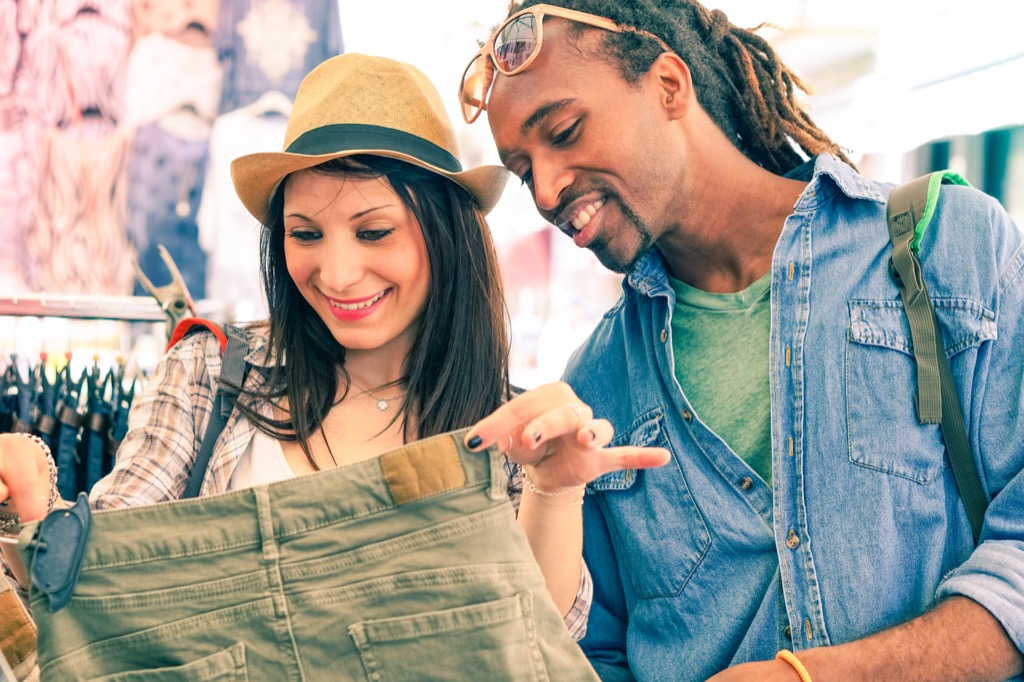
If you find yourself perpetually confused every time you venture to the store, that might be because they work entirely too hard to make sure that you have no idea how to locate your very favorite product (say, that trusty pair of skinny jeans). By using this strategy, stores bank on the fact that, in your quest to find said jeans, you’ll inevitably stumble upon other treats that you wouldn’t have normally splurged on in more familiar territory.
6
Stores direct customers from right to left.
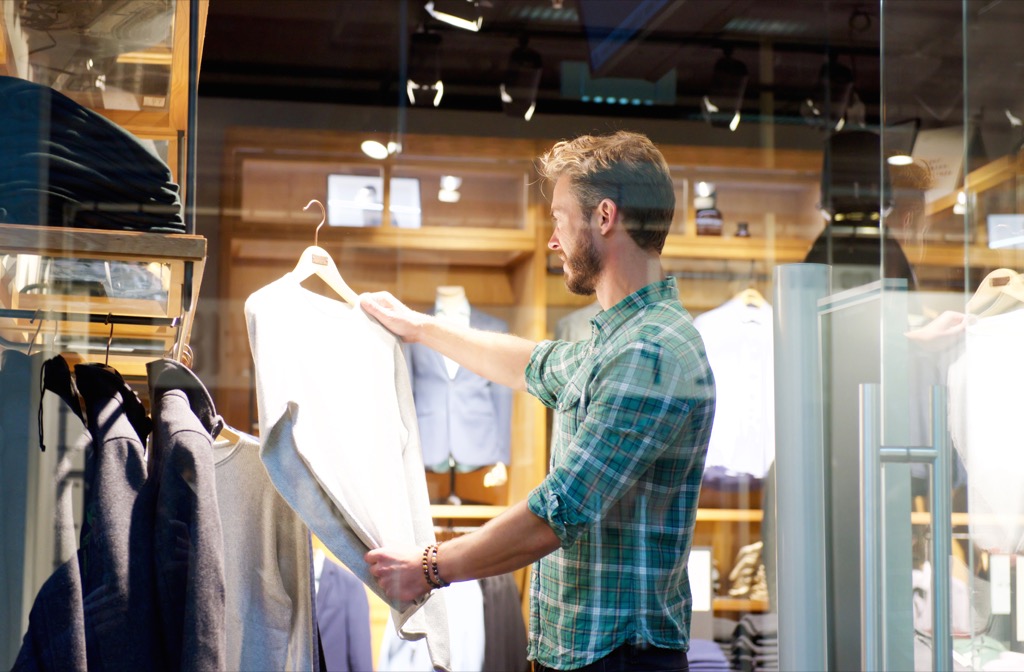
Fact: Americans drive on the right. Stores also find that customers will spend more when they are directed to move throughout the store from right to left—as customers are more likely to shop for items on the right side of the retail floor.
7
They greet you with interesting in-store displays.
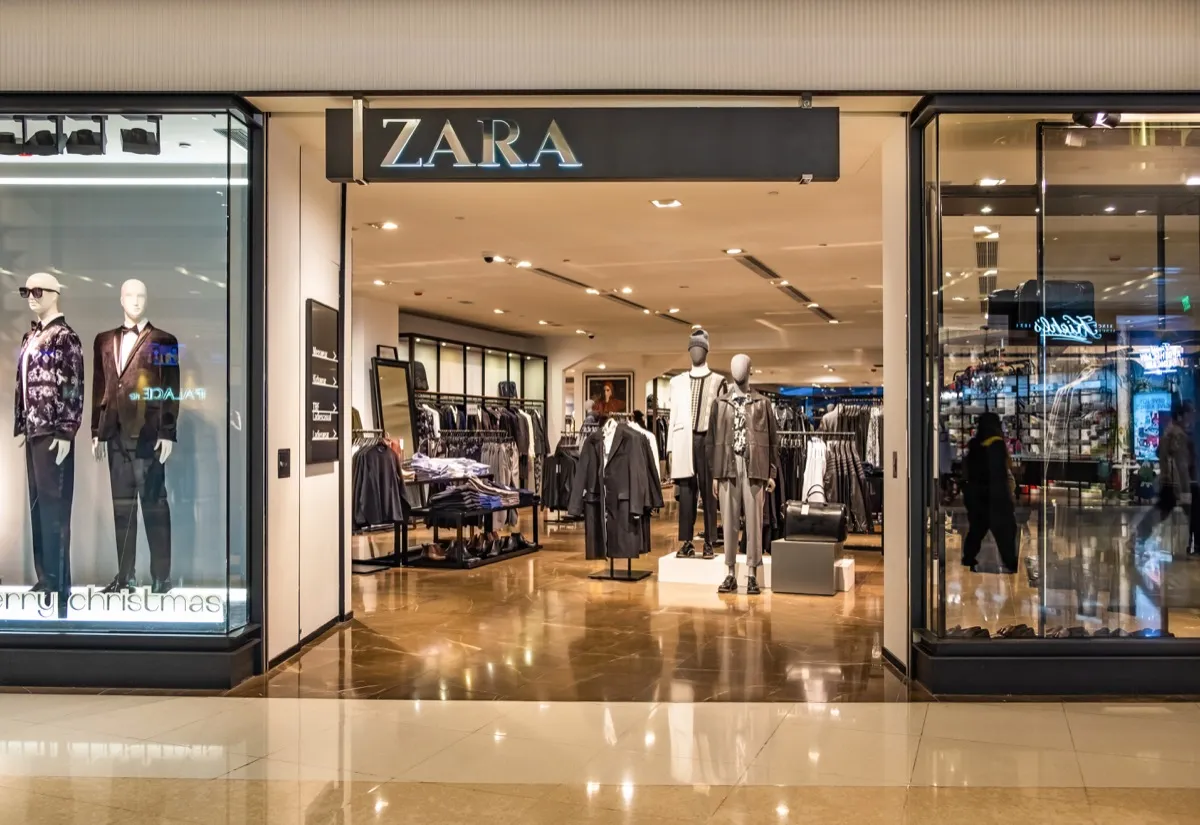
After your senses have been fully accosted by a store’s window displays, expect an equally alluring in-store display to assure you that you’ve entered into a place full of wonderful products, says Entrepreneur. This in-store display is most likely seasonal in nature, and features deals that seem too good to be true. Those at Costco are a prime example. That’s how they get you, shoppers!
8
They choose strategic colors.
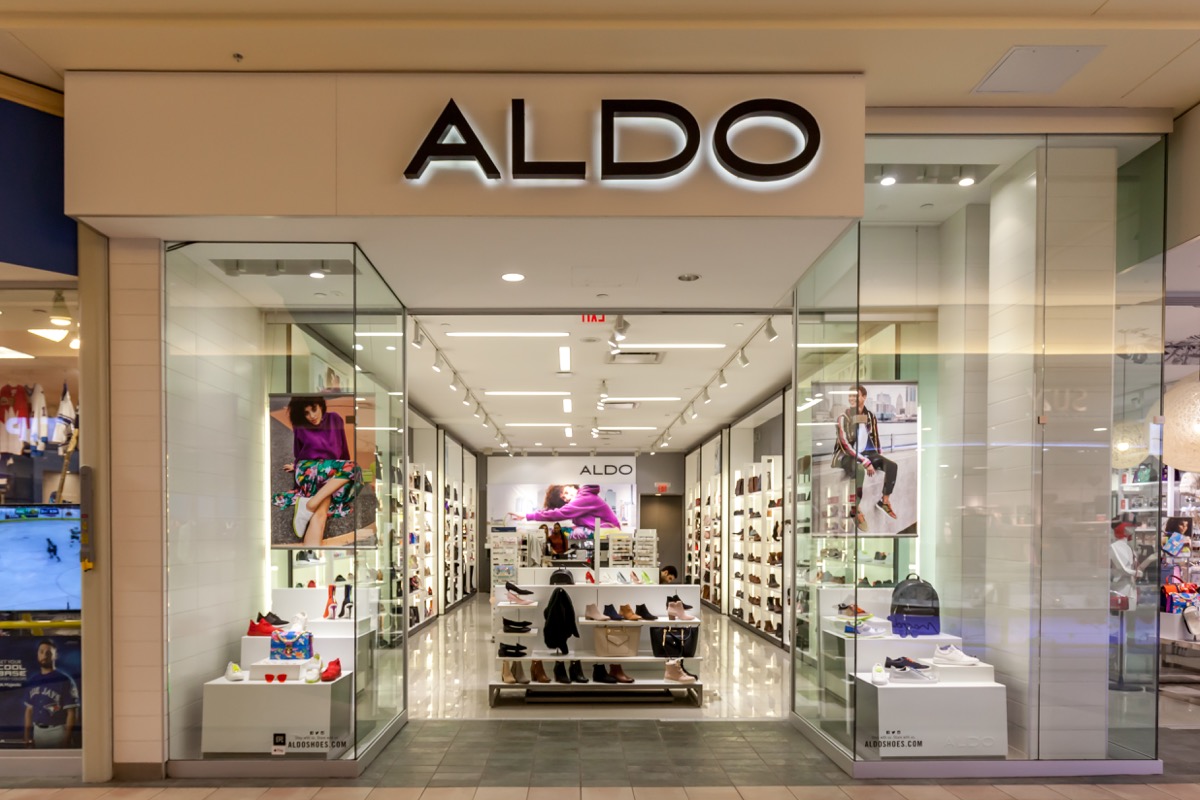
To draw customers into the store, retailers use warmer hues like reds, oranges, and yellows to appear friendly and inviting. Then, once the customer has found their way inside of the store, they deploy cooler colors, like blues and greens, to encourage the consumer to spend more money.
9
They create a “hang out” space.
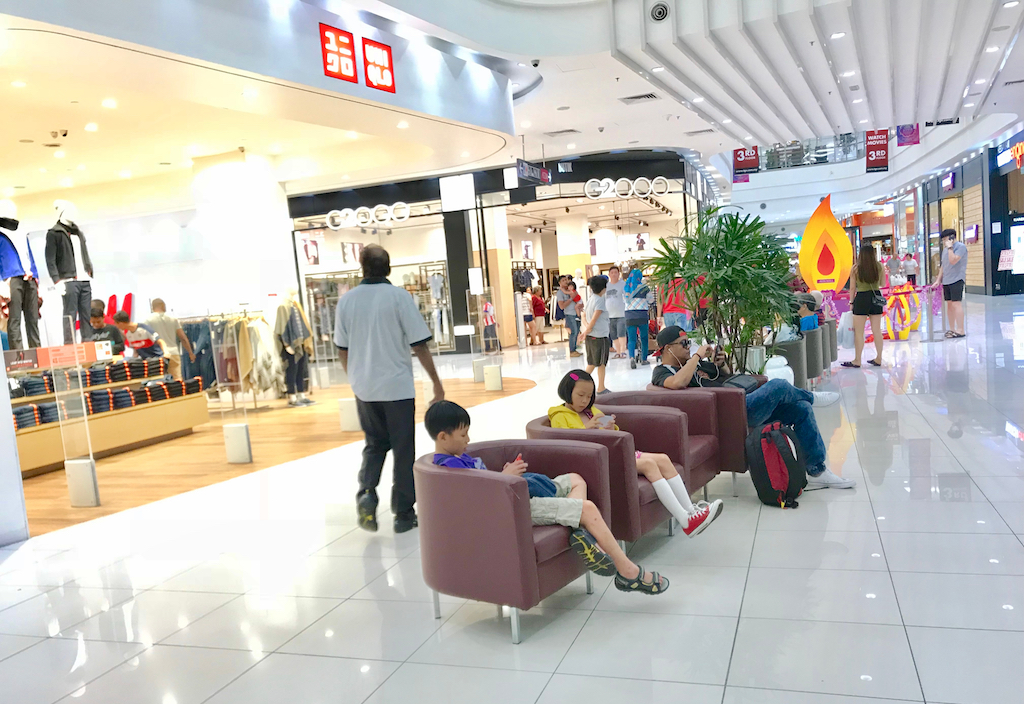
Even fast fashion retailers like Uniqlo and American Eagle have begun adding “hang out” areas in their stores, in an effort to compete with the ease and comfort of shopping from the comfort of home. Many brands see this new space as an opportunity to maintain brand loyalty with their customers—especially in their brick-and-mortar stores. Not only that, but the addition of a space that often includes add-ons, like coffee shops, makes it so that customers spend more time in the store, making them feel more inclined to make a purchase at the end of their in-store experience.
10
They create outfit displays.
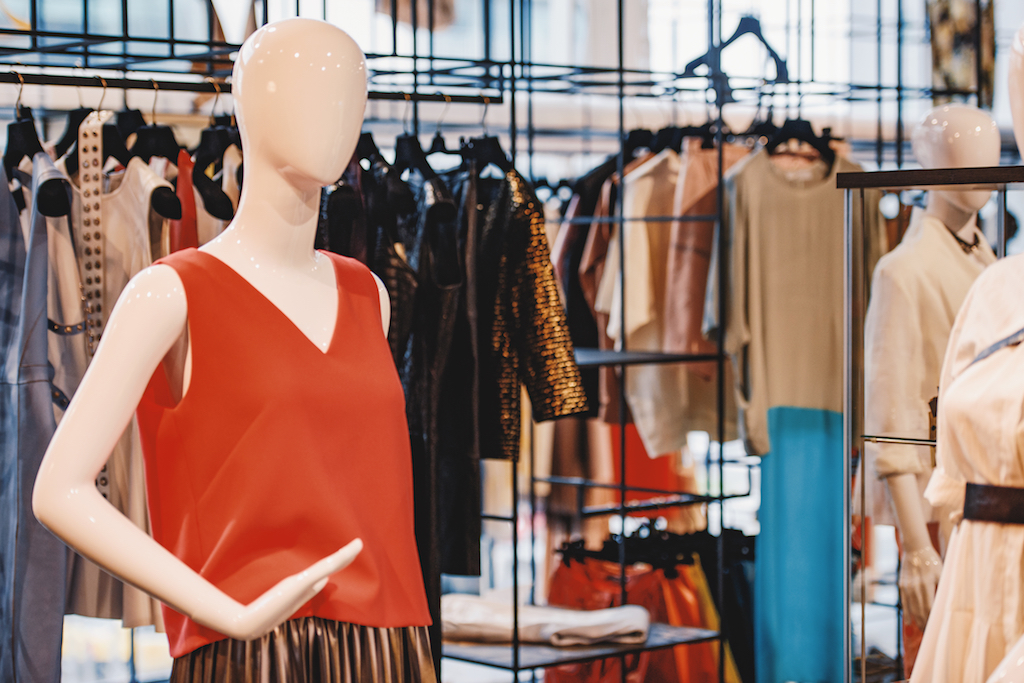
In nearly every clothing store across the world, merchandisers work to create outfits from the surrounding items to show customers how best to style and accessorize the latest and greatest pieces from the store. In this not-so-covert way, retailers are attempting to get customers to add more items to their purchases after admiring the looks on mannequins around the store, according to Business Insider.
11
The counter and register are downplayed.
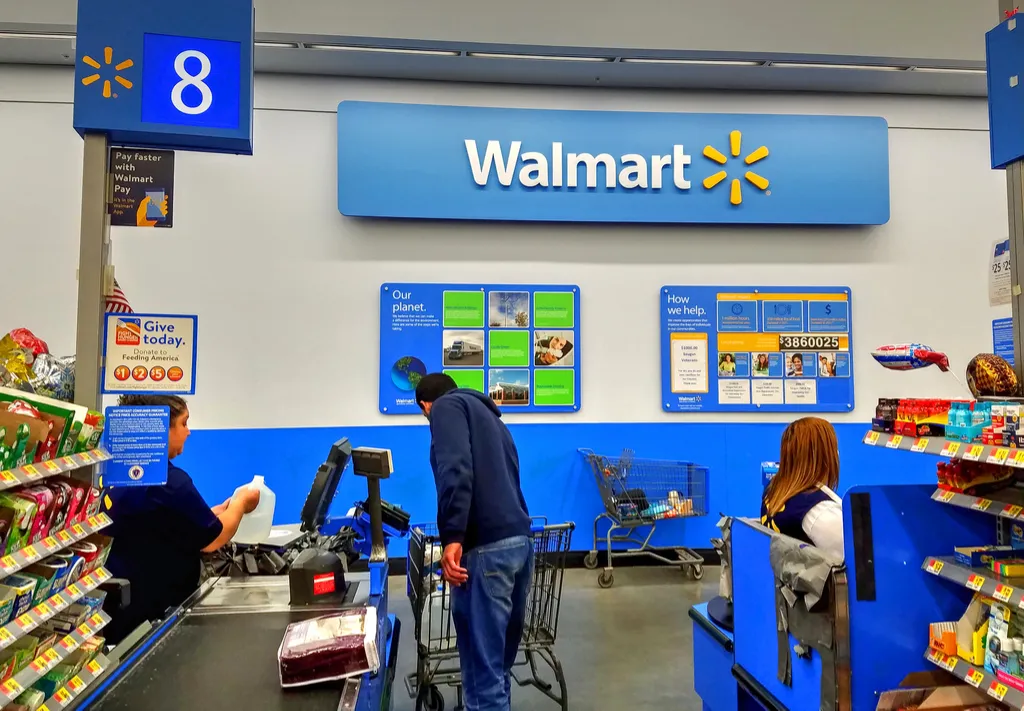
Though stores do create a natural path for customers to shop along, it wouldn’t make a lot of sense for this path to include the counter and the register on it, as the customer might then feel rushed to finish their shopping trip and cash out—an act that retailers would like to delay until the very last minute. Stores regularly downplay the existence of a cash wrap, often sticking the entire check-out island off into a corner to ensure that customers can go back and spend more money as needed.
12
Dressing rooms are always visible.
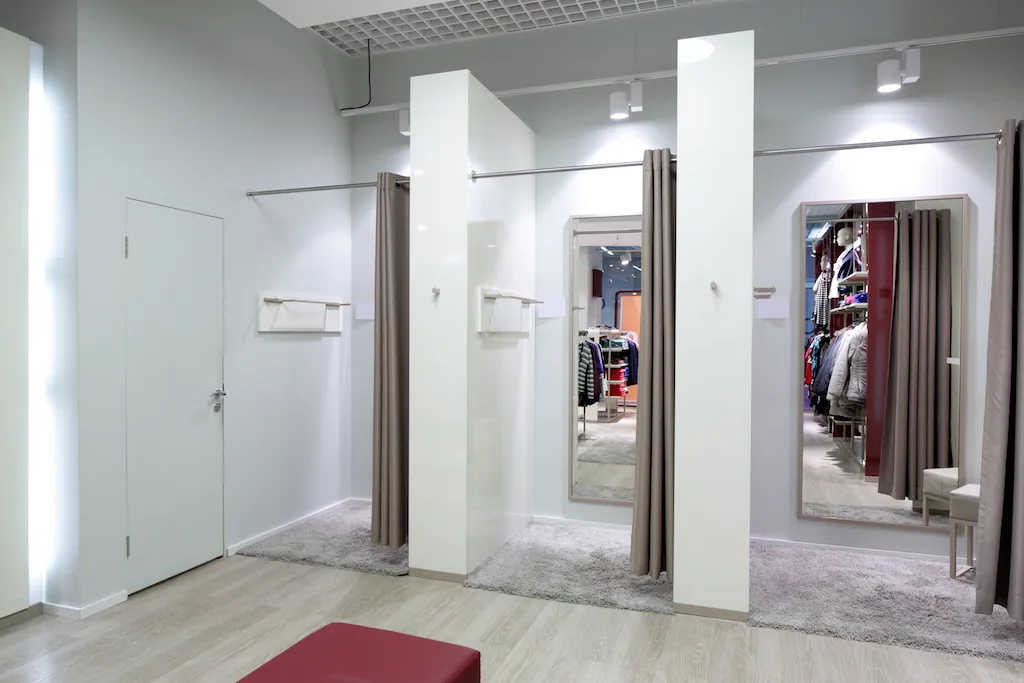
While it is true that some stores, like Target, are guilty of sticking their dressing rooms in a corner where customers are less likely to take advantage of them, most other retailers like to keep such rooms within the customer’s line of sight, as they are more likely to purchase items if they can actually try them on for size. Not only that, but it makes it easier for salespeople to spot any attempting shoplifters.
13
They keep fewer items on the sales floor.
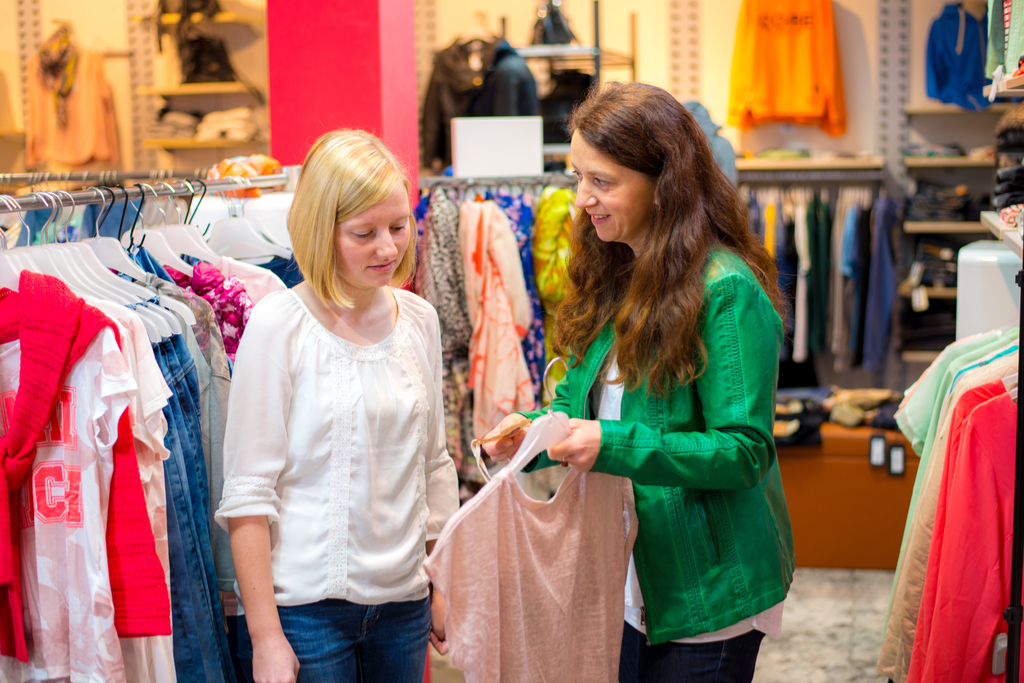
If you’ve ever walked into a clothing store only to find they’ve got just one or two items left in your size, that’s probably not an accident. “If [a store has] fewer items on the floor, you’ll likely assume they have less stock in the back—and hurry to buy your size before it sells out,” writes one former retail employee for Business Insider.
Instead of impulse-buying something you’re unsure about, ask an employee to put it on hold while you shop other options. That way, you know it’ll still be there should you decide to return for it—whether there’s more inventory in the back or not.
14
More desirable departments are far away from the entrance…
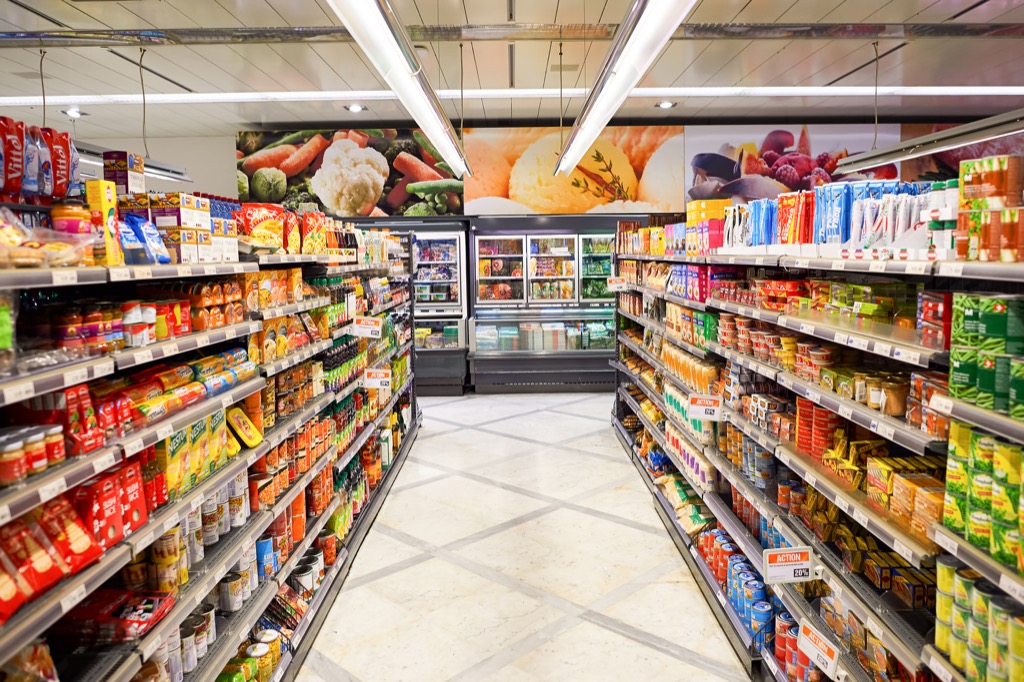
When you step into most larger department stores, you may notice that items like laundry detergent and light bulbs are always at the very back of the store—as it turns out, there’s a very interesting reason for this perplexing (and often frustrating) layout.
According to The Simple Dollar, stores stick the most desirable items in the back to increase the likelihood of spontaneous and unneeded items finding their way into your cart while you remain on the hunt for the items that you originally intended to buy.
15
…like, namely, the toy section.
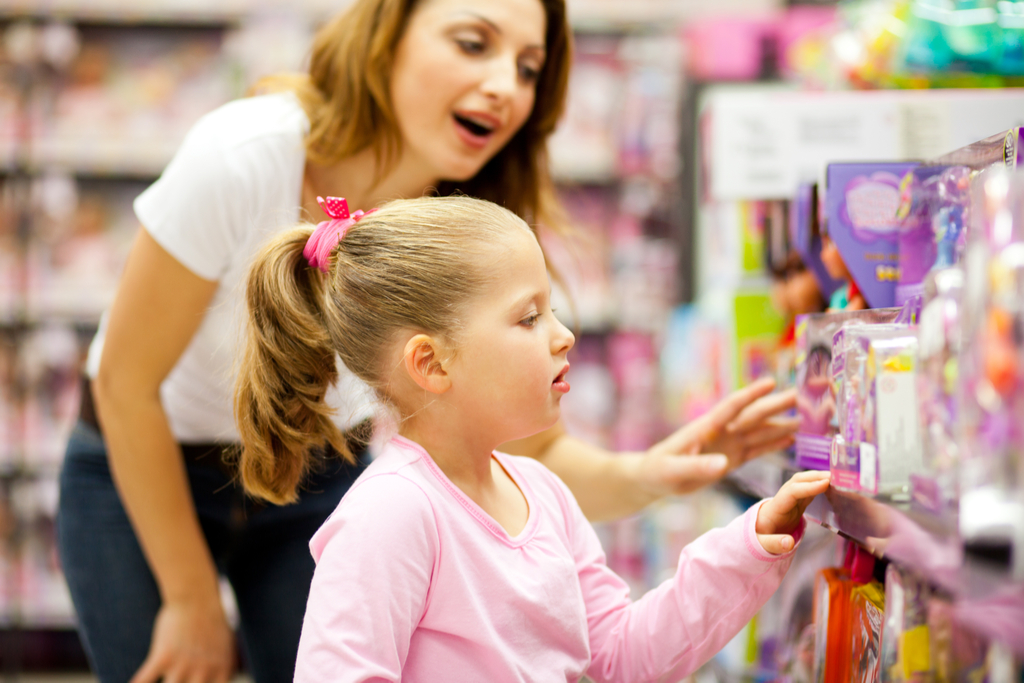
Since retailers assume that a large percentage of shoppers bring their kids, they place the toy section in the back. This way, parents busy who entice their children with the promise of toys are more likely to pick up unneeded items on the way to the toy aisle.
16
Commodity items are surrounded by non-commodity items.
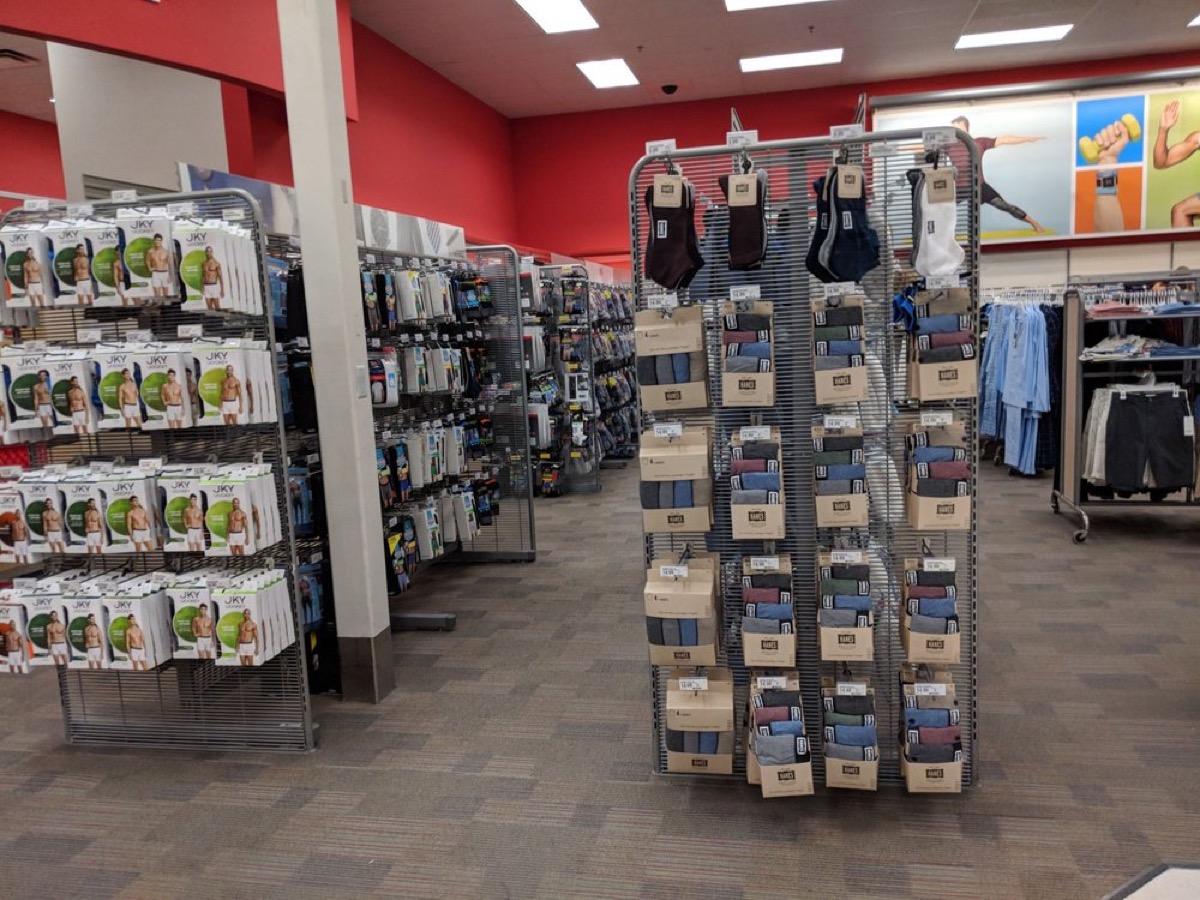
In most stores, as a ploy to sell more non-commodity items (like dresses and shoes), they often surround commodity items (like socks and underwear) with such non-essential goods as a guaranteed way to entice customers. Since retailers know that you have to buy commodity items at some point every few months, they bank on the fact that this technique may also persuade to treat yourself every once in a while, as well.
17
They sell clothing in sets.
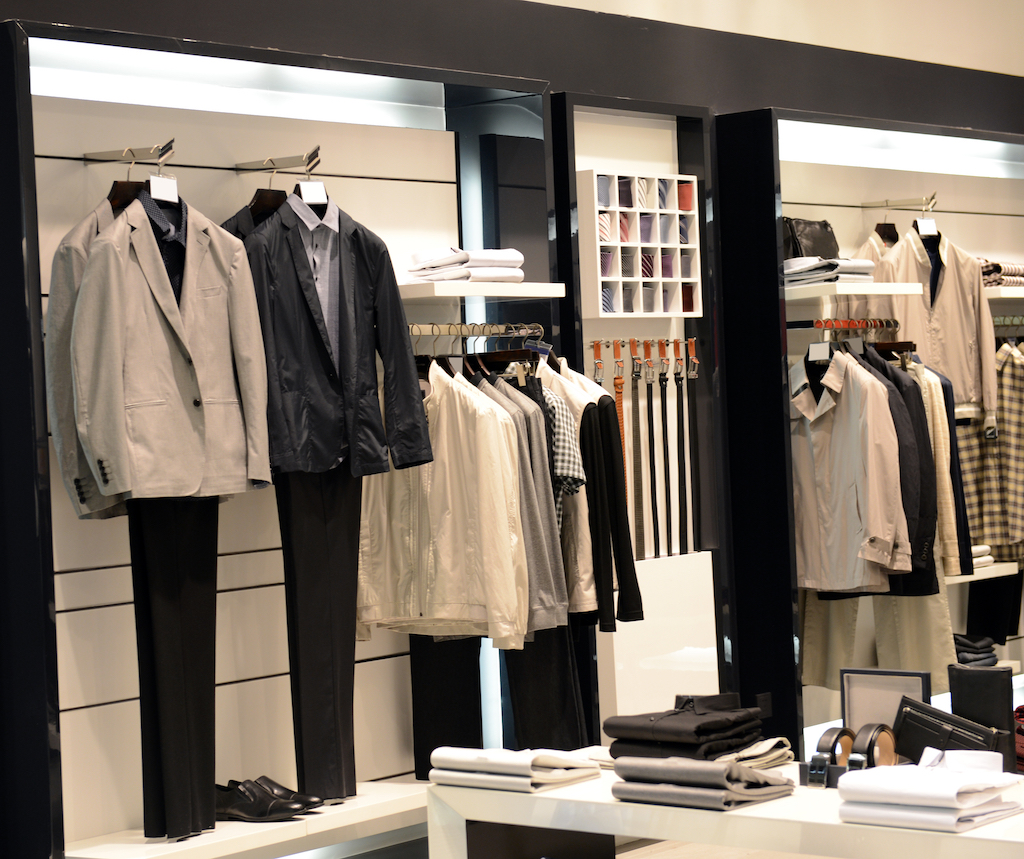
One of the first lessons in Retail 101 is how to cross-sell items, or recommend one product to a customer based off another one that’s already in their basket. And no one’s mastered the art of cross-selling quite like clothing stores have, write the retail experts at VendHQ. After all, once you know that shirt you’re buying has a matching pant, it’s going to be difficult to avoid going all in. And for more ways to improve your shopping habits, check out these 18 Dumb Things You’re Always Overspending Money On.
To discover more amazing secrets about living your best life, click here to follow us on Instagram!